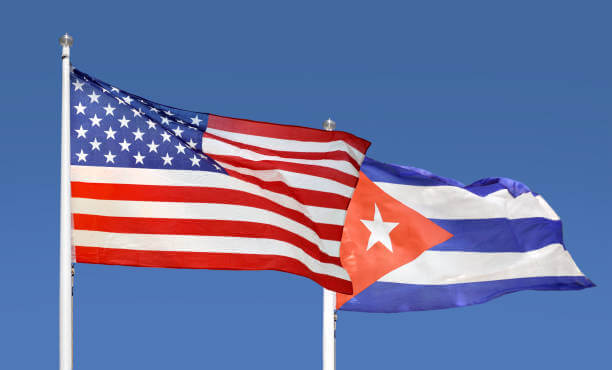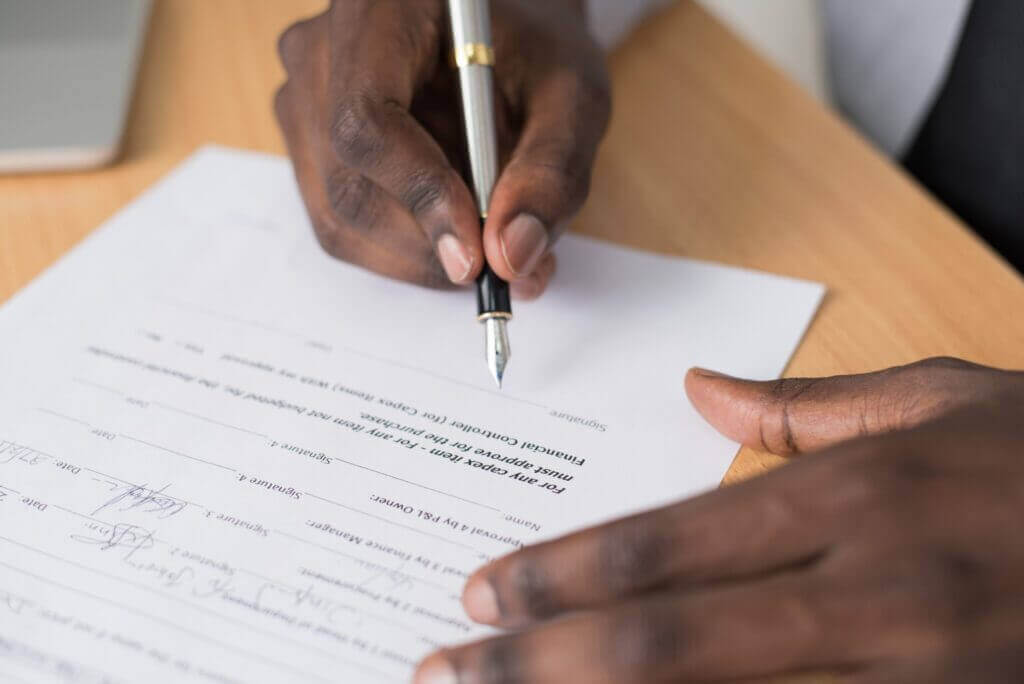Following the much-needed return of the Cuban Family Reunification Parole (CFRP) program in September 2022, let’s talk about another important legal means of relief for immigrants from the island: the Cuban Adjustment Act.
While the CFRP is an important legal resource for Cuban immigrants, The Cuban Adjustment Act offers a series of immigration benefits and privileges to Cuban citizens,becoming one of the most used routes for obtaining permanent residency in the United States.
Now, what is the Cuban Adjustment Act? What special benefits does it have for the citizens of the Island? What requirements must I meet in order to apply? What documents do I need to submit? What is the difference between political asylum and the Cuban Adjustment Act? The immigration attorneys at Jaskot Law will answer all of these questions so that you can start your immigration process to the United States well-informed.
What is the Cuban Adjustment Act?
Public Law 89-732 or the Cuban Adjustment Act, also known as “CAA,“ is one of the most important federal laws for Cuban immigrants seeking to settle in the United States. It allows citizens and/or natives of the island, together with their immediate family members (i.e., children under 21 years of age and spouses), to become legal permanent residents.
Enacted in 1966, the Cuban Adjustment Act benefits any Cuban national who was admitted or placed on parole in the United States after January 1, 1959, and who has lived in the United States for at least one year at the time of application. It is important to keep in mind that, in order to access CAA benefits, you must not leave the United States until this period has expired.

Difference between Political Asylum and the Cuban Adjustment Act
Among members of the Cuban community, it is quite common for doubts to arise as to what is the difference between political asylum and the Cuban Adjustment Act. After all, the U.S. government automatically grants prima facie refugee status to Cubans, but these are not two identical immigration remedies; rather, they are two different ways to obtain protection and permanent residency with their particular requirements and legal procedures.
A major difference between political asylum and the Cuban Adjustment Act is that, upon arrival at a port of entry or border, no Cuban is automatically eligible for the CAA. In order to be eligible, you need to have proper documentation to enter, and comply with the requirements we have listed above. On the contrary, anyone can apply for political asylum as soon as they touch U.S. soil.

Another important difference between political asylum and the Cuban Adjustment Act is that those who enter under a request for political asylum do not have residence status, but asylum seeker or refugee status. However, after one year in the United States, the Cuban immigrant can apply for the Cuban Adjustment Act and obtain permanent status, unless he or she chooses another route (such as marriage, for example).
Finally, while the CAA is a special benefit for Cuban nationals and is based on the historical relationship between the United States and Cuba, political asylum is a form of protection for all those who suffer or fear persecution in their country of origin because of their race, religion, nationality, political opinion or other similar factor.
Do you need to apply for political asylum? Contact our firm! At Jaskot Law, we are here to give you the support you need.
Benefits of the Cuban Adjustment Act
The main advantage that Cuban immigrants have over people of other nationalities is that they receive immigration benefits immediately.
Once they set foot on U.S. soil, regardless of the legality or illegality of the means by which they arrived in the country, they immediately obtain legal status in the country.
As we shall see, the Cuban Adjustment Act does not amount to political asylum, but the U.S. government automatically grants prima facie refugee status to Cubans.
Among the main benefits are:
- Immediate employment authorization document (EAD).
- Processing of the legal Green Card without the need to provide an Affidavit of Support.
- Assignment of a Social Security Number.
- State benefits for room and board.
- Adjustment of migratory status without the need to leave the country to carry out the consular processing.
Cuban Adjustment Act: Requirements for beneficiaries
A Cuban citizen applying for permanent residency under the Cuban Adjustment Act must meet the following requirements:
- Be born in Cuba (even if you do not maintain your citizenship), be a Cuban citizen or an immediate relative of a Cuban citizen (if you acquired Cuban citizenship without being born on the island, you can present your valid Cuban passport, the Certificate of Nationality or the Letter of Citizenship).
- Complete and sign the Form I-485 (Application to Register Permanent Residence or Adjust Status). Such form must be sent to the USCIS address, according to the eligibility category. Please note that the filing fee will depend on the age of the applicant.
- Have been inspected and admitted or placed on parole in the United States after January 1, 1959, or obtained an advance parole after that date.
- Have lived in the United States for at least one year at the time of filing Form I-485.
- Be physically present in the United States during the filing of Form I-485.
- Be admissible to the United States to qualify for lawful permanent residence status, or be eligible for a waiver of inadmissibility (also known as a waiver or immigration waiver).
What documentation is needed to apply for permanent residency under the Cuban Adjustment Act?
To apply for residency under the Cuban Adjustment Act, you must submit the following documents:
- Form I-485 (Application to Register Permanent Residence or Adjust Status).
- Proof of at least one year’s residence in the United States.
- Two passport photographs.
- Copy of passport or official Cuban identity card with photograph.
- Copy of the Cuban birth certificate.
- Copy of passport page with non-immigrant visa (if applicable).
- Copy of the passport page with the admission stamp or permission to enter the United States.
- Form I-94 (Arrival/Departure Record). If you do not have it, then you may present a copy of the Customs and Border Protection (CBP) admission stamp.
- Form I-693 (Report of Medical Examination and Record of Immunization), which may be submitted with Form I-485.
- Certified police and/or court records in case of arrests, convictions or criminal charges.
- Form I-601 (Application for Waiver of Grounds for Inadmissibility), only if requested.
- Form I-212 (Application for Permission to Reapply for Admission into the United States After Deportation or Removal), only if applicable.
- Documentation of previous non-immigrant status J-1 visa / J-2 visa, only if applicable. Include proof of compliance with or exemption from the foreign residency requirement under INA 212(e).
- Persons holding a diplomatic (A), G, or E visa must complete and include Form I-508 to waive certain rights and privileges.
- Form I-566 (Interagency Record of Request — A, G or NATO Dependent Employment Authorization or Change/Adjustment to/from A, G or NATO Status).

What documents should I present as proof of residency?
As we have already mentioned, one of the most important requirements to apply for permanent residency under the Cuban Adjustment Act is to have lived for at least one year in the United States. Some of the documents that may be presented as proof of this are:
- School records (enrollment, grades, certifications).
- Employment records.
- Medical records.
- Financial records (bank statements, physical deposits).
- Lease agreements.
- Utility bills (water, electricity, telephone, internet, gas).
- U.S. birth certificates for children born in the U.S.
- Dated photographs.
- Evidence of attendance at events.
- Please note that some of these forms must be submitted along with their respective processing fee.
As you may have noticed, filing so much paperwork can be complicated. However, at Jaskot Law, we can help you. Contact our team of experienced immigration attorneys today, and get the legal support you need to start your new life in the United States.
What documents do immediate family members of a Cuban citizen need?
Immediate family members (spouses and children under the age of 21) of a Cuban national under the Cuban Adjustment Act may also be granted permanent residency. In this process, family members must meet the same requirements as the main applicant, with some minor variations.
In addition to the aforementioned documentation, it is necessary to have:
- Marriage certificate.
- Evidence proving the family member’s origin (birth certificate, passport or citizenship card).
- Copy of Form I-797 (Spouse’s Notice of Approval or Receipt of Form I-485). A copy of the spouse’s green card is also helpful if you are both filing simultaneously.
- Evidence that they reside at the same address.
In any case, applying for permanent residency under the Cuban Adjustment Act can be a long and complex process, in which it is vital to submit the necessary documents in the most orderly manner possible, and to go through the multiple instances required by USCIS. Therefore, it is advisable to seek the advice of an experienced immigration attorney who can help you with the specifics of your case.
At Jaskot Law, our immigration attorneys have the experience and knowledge to provide you with the legal services you need during the adjust of status process under the Cuban Adjustment Act. Not only do we share immigration news and information, but we can also help you start a new life in the United States.
Sources
USCIS – Permanent Residency for Cuban Nationals or Citizens.
Frequently Asked Questions
What is the Cuban Adjustment Act?
The Cuban Adjustment Act is a law that provides Cuban immigrants the opportunity to obtain permanent residency in the United States. It was sanctioned in 1966 to help Cuban citizens fleeing their country.
What is the difference between political asylum and the Cuban Adjustment Act?
Political asylum and the Cuban Adjustment Act are two different ways to obtain protection and permanent residency in the United States. The main difference is that the Cuban Adjustment Act is specifically intended for Cuban nationals, and is based on the historical relationship between the United States and Cuba, while political asylum is a form of protection for those who suffer persecution in their home country due to various factors.
What are the benefits of the Cuban Adjustment Act?
Some of the benefits of the Cuban Adjustment Act are:
– Immediate employment authorization document (EAD).
– Processing of the legal Green Card without the need for an affidavit of support.
– Assignment of a Social Security Number.
– State benefits for room and board.
– Adjustment of immigration status without the need to leave the country for consular processing.
What are the requirements to be a beneficiary of the Cuban Adjustment Act?
The requirements to be a beneficiary of the Cuban Adjustment Act are:
1) Be a Cuban citizen.
2) Complete and sign Form I-485 (Application to Register Permanent Residence or Adjust Status).
3) Have been inspected and admitted or placed on parole in the United States after January 1, 1959, or obtained an advance parole after that date.
4) Have lived in the United States for at least one year at the time of filing Form I-485.
5) Be physically present in the U.S. during the filing of Form I-485.
6) Be admissible to the U.S. to qualify for Lawful Permanent Residency status, or be eligible for a waiver of inadmissibility or other immigration relief.
What happens if my application for permanent residency is denied under the Cuban Adjustment Act?
If your application for permanent residence is denied under the Cuban Adjustment Act, you may file an appeal or a new application. The law allows you to apply for an exemption through the Form I-601 and Form I-212. With the help of an immigration attorney, you may be able to demonstrate that you are eligible for a waiver.
Juan Berkowsky is a professional writer specialized in communications for social networks and digital media. His mission is to empower people through knowledge and access to information. He work with honesty and dedication to assist all those seeking to navigate the sometimes tough U.S. immigration process.


